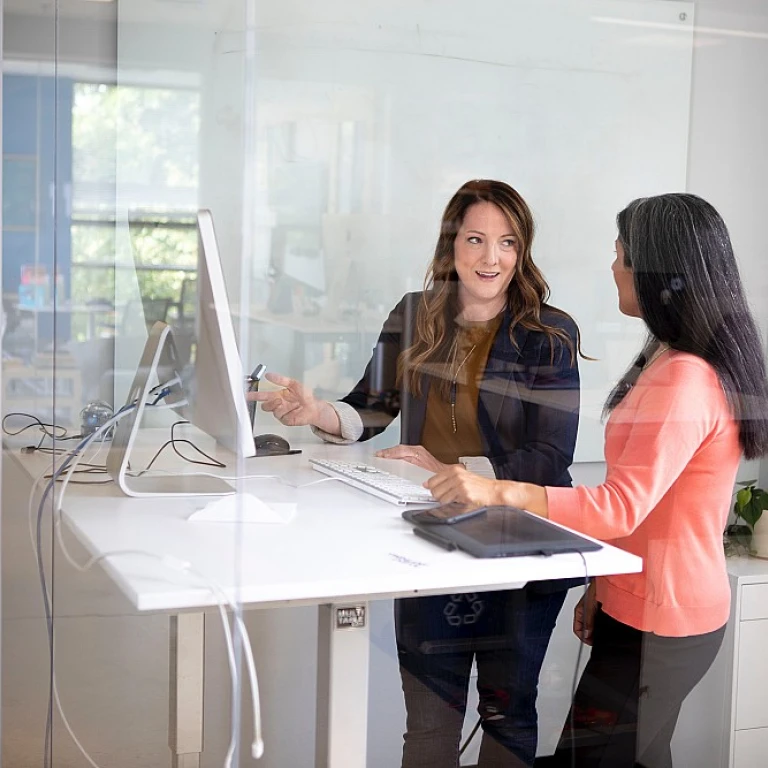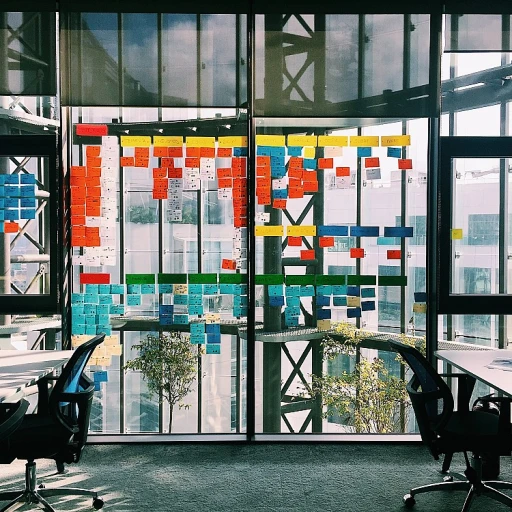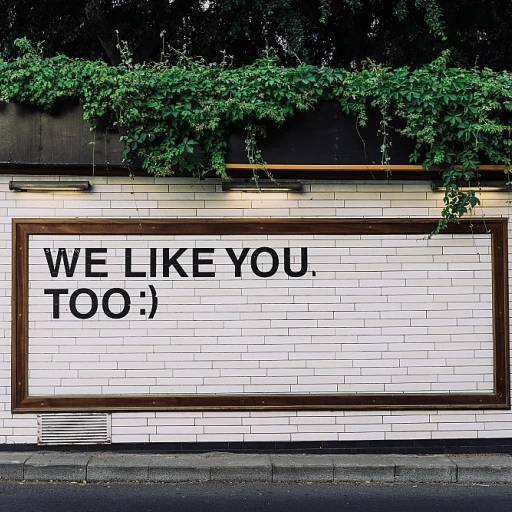Understanding Hoteling Systems
Embracing the Flexible Workspace Model
In today's rapidly evolving corporate landscape, office hoteling systems have emerged as a vital tool for optimizing workplace management. As businesses increasingly shift toward hybrid work environments, these systems allow employees to book desks and meeting rooms rather than being tied to a permanent workspace. This flexibility not only enhances employee satisfaction but also plays a critical role in optimizing office space usage. Hoteling systems provide numerous advantages by aligning the workplace environment with dynamic employee needs. Leveraging advanced booking software, employees can reserve spaces with ease, effectively managing their schedules and maximizing productivity. The rise in popularity of this model underscores its potential to reshape traditional office structures into more fluid and efficient workspaces. However, the adoption of hoteling systems is not without its challenges. Technical difficulties, adjustment periods for employees, and privacy concerns are common hurdles. To counter these, companies can integrate reliable software solutions such as Tango Reserve, which provide seamless booking experiences while ensuring data security through robust protocols. By prioritizing user-friendly platforms, employees can easily access reservation systems via mobile apps or platforms like Microsoft Teams, further streamlining their hybrid work routines. The integration of hot desking setups, aided by hoteling software, is paving the way for future-ready office spaces. As these systems evolve, they are setting new standards in workplace management, offering businesses the tools to operate with greater efficiency and adaptability." Ensuring Security: Monitoring Employee Access to Office After HoursThe Rise of Hoteling in New Zealand
The Growing Adoption of Flexible Work Environments
In recent years, New Zealand has witnessed a significant shift towards flexible work environments, prominently featuring hoteling systems. This shift is largely driven by the evolving needs of the modern workforce and the rise of hybrid work models. As organizations seek to optimize their office spaces, hoteling offers a viable solution to managing employee occupancy more efficiently.
New Zealand's businesses are increasingly recognizing the benefits of reducing fixed desks and embracing shared spaces, particularly in urban centers where office space is at a premium. The trend involves utilizing intelligent space optimization strategies to better cater to the demands of both remote and on-site employees.
One of the primary motivations for this change is the dynamic nature of today's work environment. With the advancement of technology, employees can join meetings and collaborate with their teams through platforms like Microsoft Teams, regardless of their location. This has increased the viability of hot desking and office hoteling as part of a more adaptable workplace strategy.
Moreover, the integration of sophisticated booking systems and mobile apps allows employees to reserve desks and meeting rooms in real time, streamlining the process of managing a hybrid workforce. These systems, often embedded with hoteling software like Tango Reserve, enable office managers to oversee space allocation efficiently and provide employees with seamless access to workspaces tailored to their needs.
As businesses in New Zealand increasingly adopt these flexible systems, the role of workplace management is evolving to include leveraging technology solutions that facilitate agility and adaptability in office settings.
Benefits for Office Managers
Unlocking New Levels of Efficiency
Office managers have a pivotal role in enhancing productivity within the workplace. By adopting a flexible hoteling system, managers can drastically improve office operations. Office hoteling and hot desking can provide solutions to challenges faced by businesses, especially as they transition to a hybrid work model. For starters, the primary benefit for office managers is efficient space utilization. By implementing a desking system, managers can optimize the use of existing office space and reduce overhead costs. Desks are no longer a static assignment; rather, they are efficiently booked through a hoteling desk system. Employees reserve their workspaces via a desk booking system, which can be easily managed through a mobile app or software platform like Microsoft Teams. Moreover, hoteling software often comes with integrated features such as real-time availability updates and booking software capabilities. This means that workspaces can be reserved seamlessly, reducing the time and complexity involved in traditional desk assignments. With a proper workplace management tool, coordination becomes simplified, not just with desks but also with meeting rooms, providing a cohesive reservation system. Furthermore, as the hot desking trend shows, giving employees the flexibility to book desks or office spaces encourages autonomy and boosts morale. It offers adaptability for employees who thrive in different environments, and it accommodates various work styles, increasing overall productivity. This aligns with enhancing workplace efficiency, a crucial component for today's dynamic office environments. However, successful implementation relies significantly on user-friendly systems and booking software, such as Tango Reserve, that integrate smoothly with existing office management systems. For example, integration with software like Microsoft Teams can streamline the process for both managers and employees. By embracing these solutions, office managers can navigate the complexities of transitioning into hybrid workplace models. As the landscape of work continues to evolve, staying informed on future trends in office space management will be vital to maintaining a well-functioning and productive workplace. To explore more about strategies to heighten workplace efficiency, you can explore our blog for additional insights.Implementing a Hoteling System
Getting Started with a Hoteling System
Implementing a hoteling system in your office can seem daunting at first, but with a structured approach, it can transform your workplace into a more efficient and flexible environment. Here’s a step-by-step guide to help you navigate this transition smoothly.
Assess Your Office Needs
Begin by evaluating your current office space and understanding the specific needs of your employees. Consider how often desks and meeting rooms are used, and identify areas where space could be optimized. This assessment will guide your choice of hoteling software and help you decide on the features you need, such as desk booking and real-time availability.
Select the Right Hoteling Software
Choosing the right software is crucial for the success of your hoteling system. Look for solutions that offer flexibility and ease of use, such as mobile apps for employees to reserve desks on the go. Ensure the software integrates with tools your team already uses, like Microsoft Teams, to streamline the booking process.
Communicate with Your Team
Effective communication is key to a successful implementation. Clearly explain the benefits of the new system and provide training sessions to help employees get accustomed to the new booking system. Encourage feedback to address any concerns and make adjustments as needed.
Monitor and Adjust
Once the system is in place, continuously monitor its effectiveness. Use data from the hoteling software to track space utilization and identify any issues. Be prepared to make adjustments to improve the system’s efficiency and ensure it meets the evolving needs of your hybrid workplace.
Consider Future Growth
As your company grows, your office space needs may change. Choose a hoteling system that can scale with your business, allowing you to add more desks and spaces as needed. This flexibility will help maintain a dynamic and productive work environment.
Implementing a hoteling system is a strategic move towards modernizing your office management. By carefully planning and executing each step, you can create a more adaptable and efficient workspace for your team.
Challenges and Solutions
Overcoming Obstacles in Hoteling Implementation
The integration of a hoteling desk system in the workplace comes with its unique set of challenges that office managers need to address strategically. Here are a few common obstacles and potential solutions:- Resistance to Change: Employees accustomed to assigned desks may resist transitioning to a hot desking system. Clear communication about the benefits of hoteling, such as increased flexibility and collaboration opportunities, is vital. Conducting workshops or training sessions can help ease the transition.
- Ensuring Availability: Real-time visibility into desk availability is crucial for employees who reserve spaces or book meeting rooms. Implementing robust booking software can ensure efficient desking reservations and minimize double bookings. Software solutions, including a mobile app, can support seamless space management.
- Space Optimization: Allocating the right amount of workspace for a hybrid workplace requires careful planning. Desk booking systems need to be complemented by a strategic approach to office space planning. Utilizing occupancy data can aid decision-making processes regarding space allocation and employee distribution.
- Technological Integration: Successfully implementing office hoteling often involves the integration of software tools like Microsoft Teams and Tango Reserve. These tools support reservations and improve workflow efficiency. Collaboration between IT and management teams is critical to ensure the integration is seamless.








